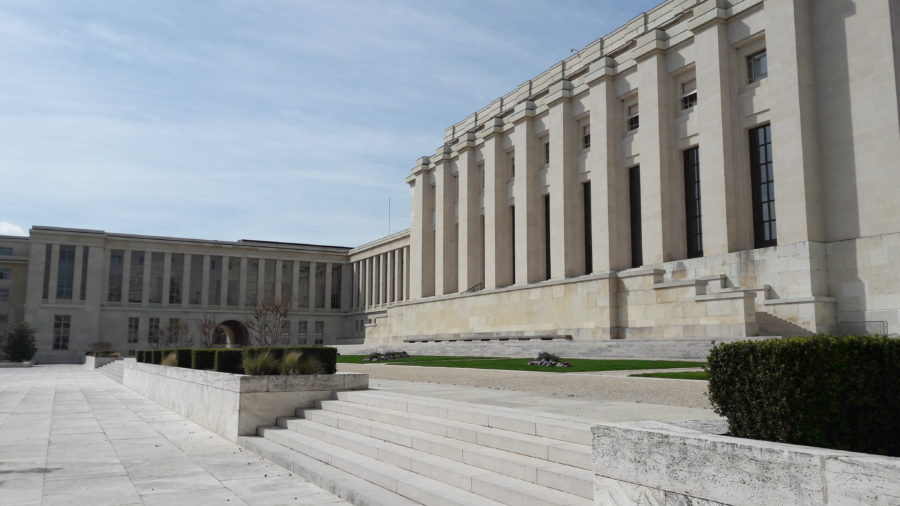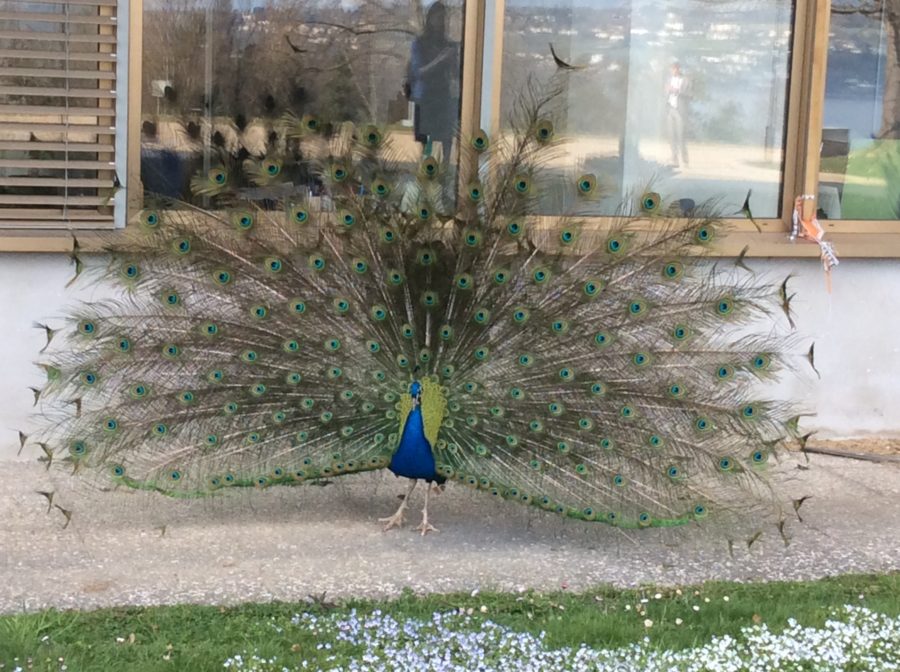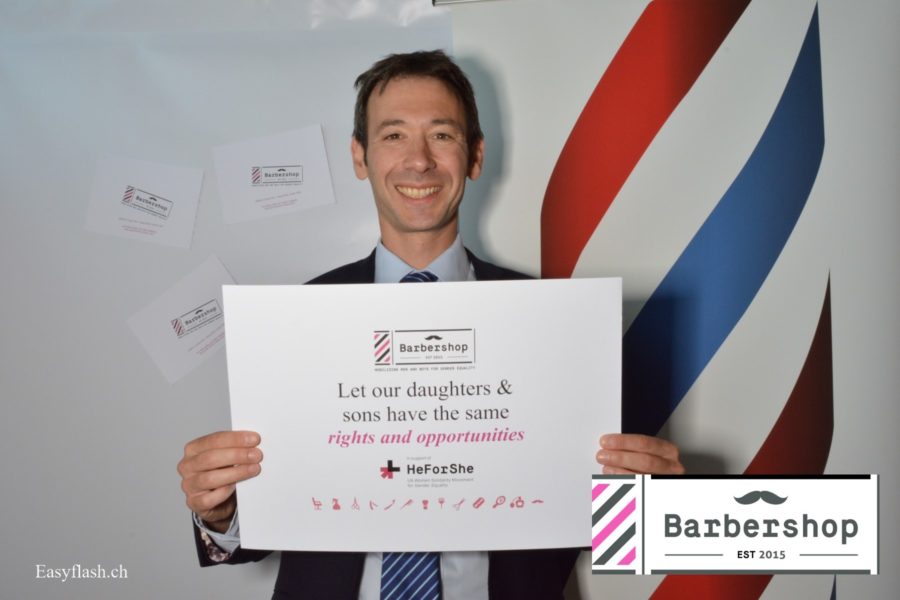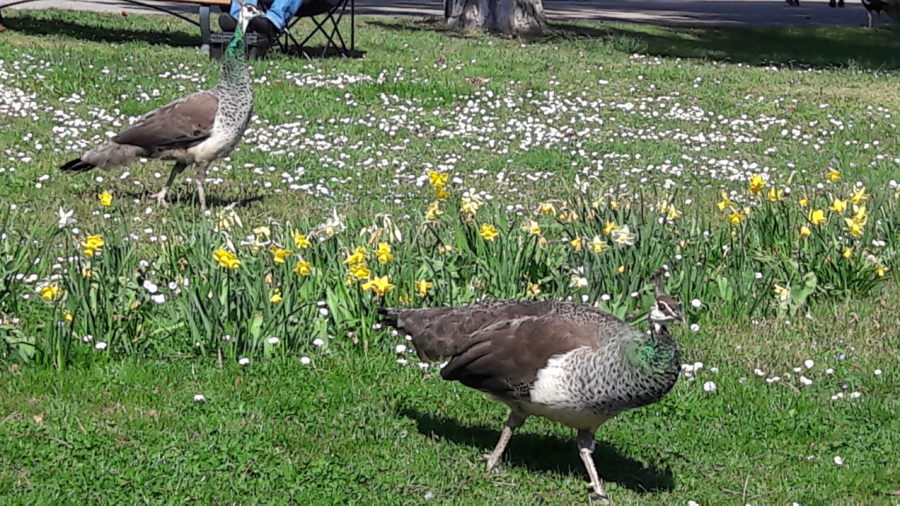20th June 2017 Geneva, Switzerland
In praise of peahens

One of the more amusing oddities that comes with going to the UN is having meetings interrupted by the screams of the peacocks that wander freely outside. It often seems like the vicarious expression of the feelings of those of us trapped inside for hours on end, arguing over any number of things that really shouldn’t be that difficult to resolve. A colleague told me recently about an angry peacock that caused serious damage in a US liquor store. I wonder if the reason the UN cafes have stopped serving alcohol in the afternoons is to avoid fractious confrontations between UN security and irate peafowl.

I sometimes think that there’s a little too much peacockery inside UN meetings too. On the whole, most people at the UN, whether from states, civil society or the UN itself toil away endlessly away behind the scenes, trying to do their best for their country or cause. But there’s also a small number who see taking part in meetings as an exercise in self-promotion and put this above the difficult job of reaching agreement on points of substance. It’s clear to me that if you really want to get things done around here, we’re better off leaving things to the low-key determination of the world’s peahens.
There’s a major focus on gender issues in the June session of the Human Rights Council, with important resolutions covering discrimination against women, child early and forced marriage, and trafficking in persons, to name a few. The UK’s Special Envoy for Gender Equality, Joanna Roper, was among a number of high level visitors who took part in the Council’s annual discussion on women’s rights. Canada has focused its resolution on violence against women on the role of men and boys in preventing violence against women and girls, picking up the themes of the he for she campaign launched by Emma Watson in 2014. Iceland have also been doing good work on this issue with “barbershop” events to symbolise the safe space where men can talk to men. There’s no doubt that men and boys must be engaged much more actively in stopping violence. If we really want to see a global change, we need to find ways to spread the message much wider and for it to be championed by those who can speak to men across the broadest possible social, cultural and professional spectrum.

Stopping violence was also at the heart Vitit Muntarbhorn’s call for ‘diversity in humanity and humanity in diversity’ in his initial report as the UN expert on sexual orientation and gender identity. His message is that in order to achieve recognition of humanity’s diversity, including on grounds of sexual orientation and gender identity, we must foster mutual respect and tolerance for all – humanity in diversity. Vitit’s many years of experience were evident in his accomplished address to the Council in week 1 , in which he made clear his desire to work with all parties, whether they supported his mandate or not. We wish you well Vitit.
I don’t know if the soaring temperatures outside are to blame but there have been some unusual goings on over the last week. For the first time in Council history the EU’s member states didn’t deliver an item 4 statement which addresses the world’s most serious country situations. This understandably attracted attention from both press and NGOs, especially as the statement drew some firmly worded responses from some states, despite not actually being delivered. I sincerely hope the EU will be able to put its views on the record in the future and I share the disappointment that this did not happen. But it got me wondering whether this might be the start of a new Council fashion of states responding to things that others had probably nearly said, which they almost certainly wouldn’t have liked had they done so.
There is still much to sort out before the Council finishes on Friday and among the more difficult issues will be how the Council addresses the alarming situation in the Kasaïs region of the Democratic Republic of the Congo. The EU has presented a resolution which responds to reports of an unprecedented wave of gross human rights violations and abuses, perpetrated by all parties. More than forty mass graves have been discovered and the list of violations includes many extrajudicial killings, sexual and gender based violence and recruitment of child soldiers. The EU has proposed that the UN set up an investigation in response. So far there is no agreement with the African Group, which has put forward its own resolution focussed on providing technical assistance to the DRC Government. The African Group text attributes the blame firmly with rebel militia, while praising the DRC government for its prompt management of events. Negotiations continue, but it is clear that the Council’s response must be commensurate with the undeniable gravity of the situation.
If I can survive the testing heatwave, I’ll be back at the end of the session with an update on how things went. In the meantime, if you see any peacocks putting on a display, sober or otherwise, I’d avoid giving them too much attention. There’s bound to be a peahen nearby quietly getting on with something more important.

I wondered if/when the peacocks would make it onto your blog! A great read, as ever. Good to know that Vitit did such a great job in presenting his first report, especially given the hard fought vote last year to create the first mandate on LGBT rights.